Does "Diet Whey Protein" Help You Lose Weight?
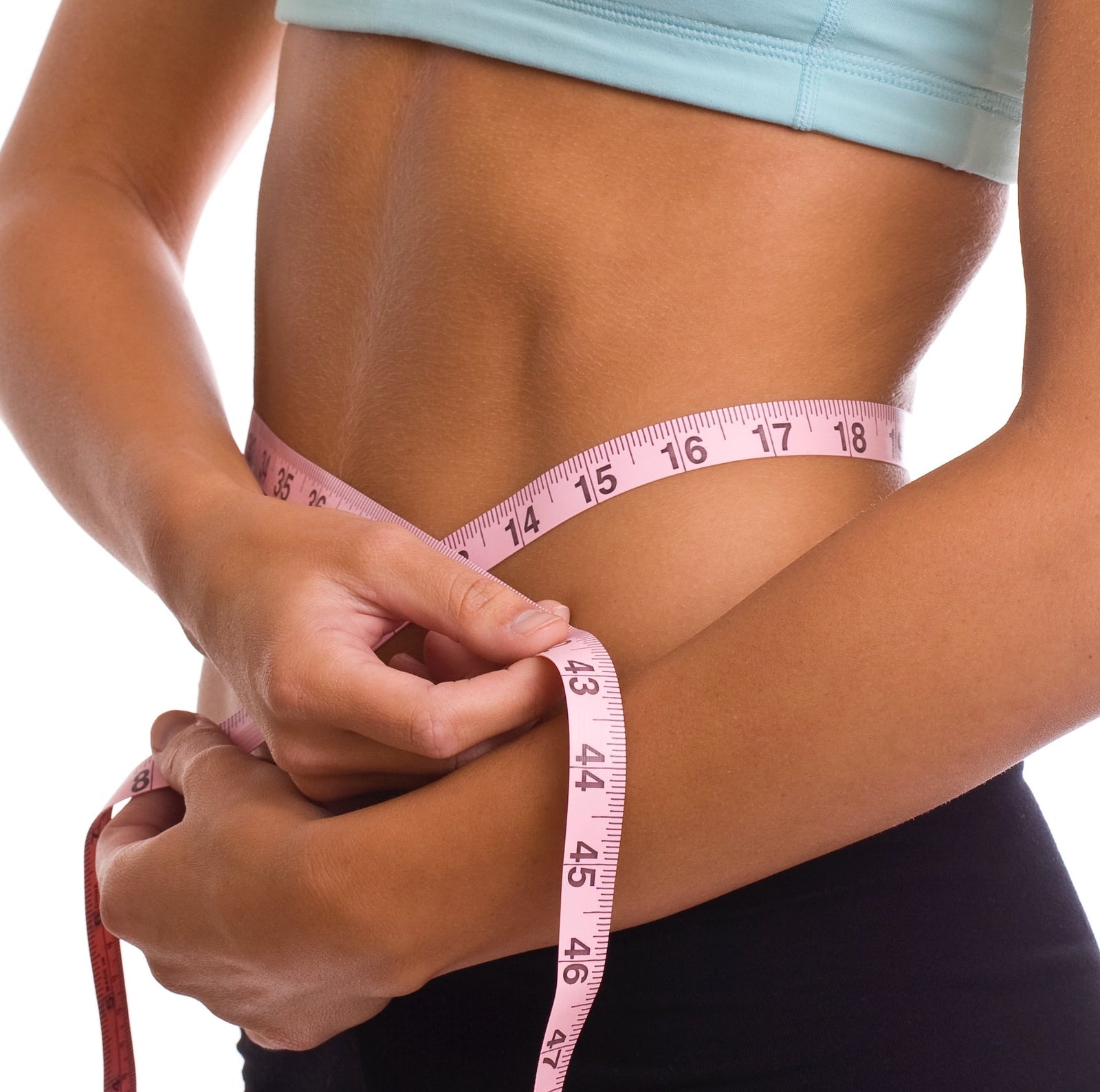
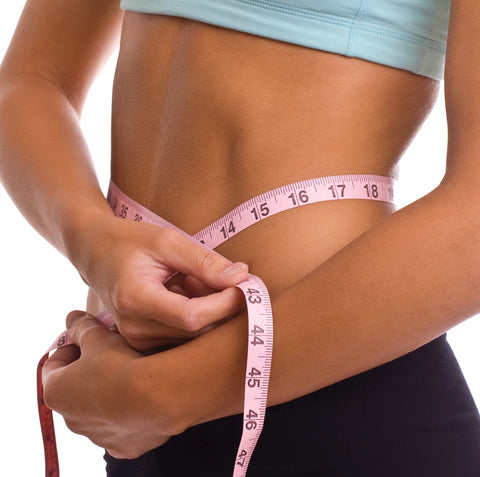
The popularity of whey protein powder as a sports performance supplement has grown exponentially in recent years. What was once perceived as a body-building aid used mostly by the male population, is now an integral asset to anyone working out or looking to improve the way they look – amateur or pro, male or female.
The evidence supporting the use of whey for enhanced performance, weight loss and elevated recovery is indisputable - but with so many brands and varieties out there, purchasing protein powder can quickly become bewildering. Added to that some misleading marketing, questionable claims and ingredients lists as long as your arm, and you’ll quickly become confused - especially if you're new to the world of supplements.
One of the best-selling whey protein powders are so-called ‘Diet Whey’ protein powders - but the question is, do they REALLY help you lose weight? Read on to find out...
What is Whey?
First things first, lets be clear on one thing – whey isn't something that has been created or invented by the fitness industry - it is simply a natural protein found in milk. Whey Protein is typically produced as a by-product of the cheese-making process (think Little Miss Muffet) before being filtered to remove the majority of fat, carbohydrates and other waste products to produce the fine powder you receive in your bags. Whey is just another source of protein - much like chicken or fish, yet it's a lot more convenient to take, faster to absorb and usually more cost effective per gram of protein. It also just so happens to contain high levels of all 9 essential amino acids making it the perfect provision for your body to utilise for muscle metabolism and muscle protein synthesis (growth).
Diet Protein: Weight loss or Whey less?
Diet versions of whey protein powder are ever increasing in popularity and are often seen as the product of choice for those aiming to lose fat whilst maintaining muscle mass. But is there a difference between regular whey and "diet whey", and if so - what is it?
Let’s start by taking a closer look at diet whey proteins, and what manufacturers are changing in order to call it ‘diet whey'. When you think of diet food and drink, you would expect products to be lower in fat, sugar, carbohydrate and calories which can help aid weight loss. With diet whey however - the same logic isn’t always used.
All good quality protein powders should be naturally high in protein, whilst lower in carbohydrate and fat as a standard - it's what makes them great for building muscle and perfect for assisting weight loss, so it begs the question - what makes Diet Whey's more "diet"?
The truth is - nothing is the short answer, but there is some evidence to suggest that there could be a benefit from some of the ever-growing list of additional ingredients brands add into their powders to help them be more ‘diet’ focused? Some of the most common ingredients found in Diet Whey Protein Powders include things like L-Carnitine, L-Glutamine, Green Tea Extract and Fibre - below we take a closer a look at their benefits.
Curious Claims and Embarrassing Evidence: Why you shouldn’t always believe what you read.
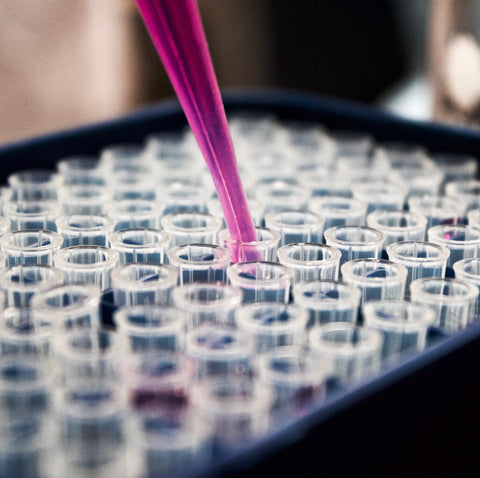
In order to get past the fact that good quality whey is already ‘diet friendly', manufacturers and brands use marketing of the additional ingredients to justify a ‘diet’ label. They argue that it's better to take their powders if chasing weight loss because you can benefit from the fat-burning benefits of those ingredients "proven" to burn fat.
As mentioned above, some of the most common ingredients used in Diet Whey's are L-Carnitine (which helps the body use fatty acids for energy), L-Glutamine (which helps to preserve muscle mass) and Green Tea Extract (which has been proven to boost metabolism). These are all true statements, supported by scientific studies and research, but the ONE thing that is CRUCIAL to these ingredients working is getting the right dosage, otherwise they'll not have the desired effect they're marketed to have.
For example - Green Tea Extract contains something called catechins which have been shown to increase energy expenditure and fat oxidation (breakdown of fat into energy) in humans who drink green tea. This may have a positive effect on weight loss and evidence has shown that the most effective dose of green tea extract for the body to utilise catechins is between 400-500mg per day. Per serving, the market-leading diet whey contains just 100mg green tea extract, so not only would you need 5 servings of diet whey per day to get the effects of the catechins, but you could also get the same effect from a regular brew.
L-Carnitine on the other hand - another popular sports performance supplement - has been proven to promote the utilisation of fat over muscle mass for energy production, giving L-Carnitine it's fat-burning, muscle-building (or preserving) reputation. Evidence shows L-Carnitine can be effective at a dose of 1g, but for maximum fat-burning effect it should be supplemented at a dose of 2-3g. The market leading Diet Whey contains only 125mg L-Carnitine per serving which of course is far less than the minimal effective dose and worlds away from the optimum dose to burn fat. In fact, you’d need 16 servings of diet whey to reach the lower end of the optimum dose which is a whopping 1,456 calories per day just from shakes!
And what about calories? Does the positive affect of fat burning ingredients negate the fact most Diet Whey's have MORE calories per serving that a Whey Isolate? We cover that in the next section.
Whey Protein Isolate for Weight Loss: Is This The Whey Forward?
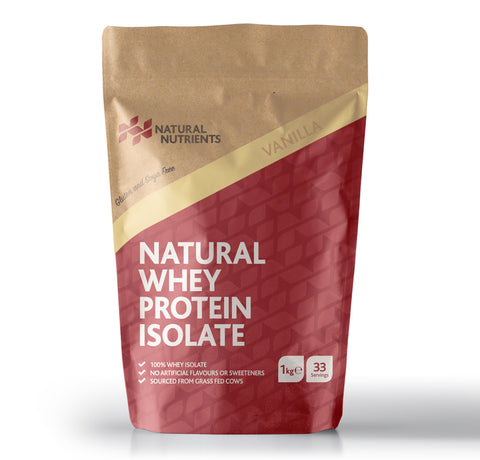
We’ve covered ingredients, and how likely – or unlikely – they are to help you reach your weight loss goals, but what we absoloutely cannot discount is the fact that whether you lose weight or gain weight, the overriding factor relies on whether you're creating a calorie deficit or a calorie surplus - it has nothing to do with "fat burners" and little to do with supplements for that matter.
When we were conducting research for this article, we looked at four of the market-leading diet whey powders and noticed they typically contained more carbohydrate, fat, sugar and calories than our Natural Whey Protein Isolate's and to make matters worse – they also contained less protein per gram too (the one nutrient with the most benefit to weight loss).
In summary, here's what our findings showed:
1. Diet Whey's often contain MORE calories than our Natural Whey Protein Isolate's
2. Our Least Favourite Diet Whey Protein contains more Carbohydrate, Fat and Sugar but LESS Protein than Natural Nutrients Natural Whey Protein Isolate
Out of the four diet whey powders we compared with our own whey protein powder, we felt the "blue brand" below was the worst product. Take a look to see how we compare. With significantly higher protein, and vastly lower amounts of carbs, sugar and fat, it’s easy to see that our whey would be a better choice for weight loss.
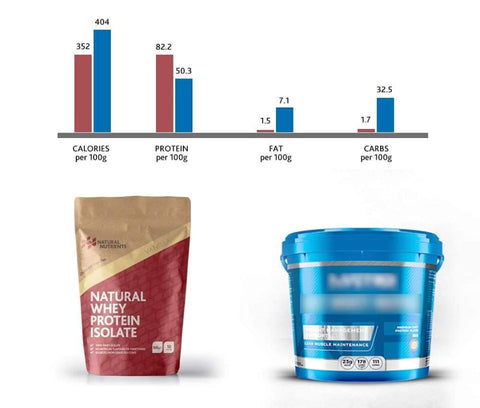

3. Our Favourite Diet Whey product was still the Best of a Bad Bunch: Lower in carbs, fat and sugar but also (crucially), lower in Protein!
We found PhD Diet Whey to be the best of a bad bunch. Per serving it contains far less carbohydrate, sugars, fat and calories than its rival diet whey powders, but the protein content of PhD Diet Whey comes in at 70g per 100g gram, compared with 90g per 100g (28% more) you’d get with our Unflavoured Natural Whey Isolate.
Final Thoughts
We hope to have given you an insight into the world of so-called ‘Diet Whey’ protein powders and the misleading marketing that goes along with it. When choosing a protein powder to supplement your diet and enhance your performance, we’d recommend being cautious about added ingredients and claims such as ‘fat-burning’ and ‘weight-loss formula' as the science and evidence doesn't usually support the claims brands will make, and simply having an ingredient IN a product doesn't necessarily mean you'll benefit from it.
The reality is, you don't NEED any supplement at all to help lose weight or recover from training, but it is more convenient, more cost effective and usually easier for most to supplement with a whey protein powder to assist these goals especially if a) you have a high daily protein target and/or b) you struggle to eat as much protein as you need due to your schedule, work or general day to day lifestyle.
If you have any questions or comments, please drop them below and we'll be happy to answer them for you.
Thanks for reading.
Stephanie Masterman
Natural Nutrients Nutritionist
References
- Larhammar, D., Larsson, I., Gilardini, L., Invitti, C. and Di Pierro, F. (2016). Green-tea extract and piperine: do they really maintain weight loss, and if so, weight loss of what?. Focus on Alternative and Complementary Therapies, 21(3-4), pp.164-165.
- Westerterp-Plantenga, M., Lejeune, M. and Kovacs, E. (2005). Body Weight Loss and Weight Maintenance in Relation to Habitual Caffeine Intake and Green Tea Supplementation. Obesity Research, 13(7), pp.1195-1204.
- Henning, S., Niu, Y., Lee, N., Thames, G., Minutti, R., Wang, H., Go, V. and Heber, D. (2004). Bioavailability and antioxidant activity of tea flavanols after consumption of green tea, black tea, or a green tea extract supplement. The American Journal of Clinical Nutrition, 80(6), pp.1558-1564.
- Astrup, A. (2011). The relevance of increased fat oxidation for body-weight management: metabolic inflexibility in the predisposition to weight gain. Obesity Reviews, 12(10), pp.859-865.
- Mohammadi-Sartang, M., Mazloom, Z., Raeisi-Dehkordi, H., Barati-Boldaji, R., Bellissimo, N. and Totosy de Zepetnek, J. (2017). The effect of flaxseed supplementation on body weight and body composition: a systematic review and meta-analysis of 45 randomized placebo-controlled trials. Obesity Reviews, 18(9), pp.1096-1107.
- Lorenzen, P. and Schrader, K. (2006). A comparative study of the gelation properties of whey protein concentrate and whey protein isolate. Le Lait, 86(4), pp.259-271.
- Coker, R., Miller, S., Schutzler, S., Deutz, N. and Wolfe, R. (2012). Whey protein and essential amino acids promote the reduction of adipose tissue and increased muscle protein synthesis during caloric restriction-induced weight loss in elderly, obese individuals. Nutrition Journal, 11(1).


Leave a comment